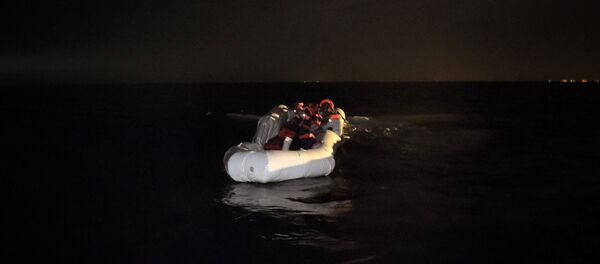BELGRADE (Sputnik), Victoria Mladenovich — According to the advocacy manager, the living conditions asylum seekers face in Greece are appalling.
On January 12, the German Interior Ministry's spokesman Tobias Plate said the transfer of migrants to Greece in line with the European Commission's recommendations would be possible from March 15.
“News that Germany and the EU want to resume returns of asylum seekers to Greece under Dublin II are extremely concerning. Such returns were halted five years ago as conditions in Greece were considered inadequate for asylum seekers. If anything, the situation has only deteriorated over recent years for asylum seekers in Greece, as the country struggles to manage more than 50,000 people that arrived in the last year,” Roland-Gosselin said.
According to her, “the relatively new asylum services cannot cope with its current workload” and thus the asylum seekers in Greece wait for the decision on their claim “for months or even over a year.”
“Cold conditions throughout Greece in the last week have also highlighted the appalling conditions asylum seekers throughout the country are living in – as thousands of people are living in flimsy tens, with no access to heating and little access to essential services,” Roland-Gosselin added.
The European Union's Dublin regulations, ruling that refugees must apply for asylum in the first EU country they enter, were suspended in Germany in 2011 due to the poor conditions and infrastructure to process asylum seekers in Greece.
“These conditions cannot be considered appropriate and sufficient to protect people’s basic rights to protection, assistance and dignity. Adding an even bigger burden onto Greece will not contribute to stemming arrivals, but will only put people’s health and well-being at even greater risk,” Roland-Gosselin warned.
On December 8, 2016, the EU recommended that member states return to the practice of sending asylum seekers back to Greece, starting with March, assessing that Greece has made significant progress in putting in place the essential institutional and legal structures for a properly functioning asylum system.


